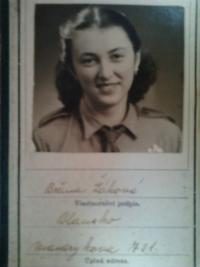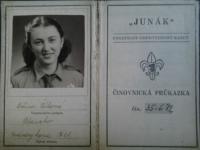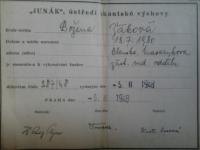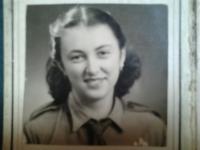Experience great time in Scouting just as I did
Božena Smáhová was born July 30, 1930 in Blansko. Growing up with her sister in a loving family she had wonderful childhood. Her father was a barrister, and the family thus did not have to face any financial problems. Her parents were supporters of the Sokol organization, and Božena therefore had to attend the training sessions twice a week. When she was eleven, she began studying at the grammar school in Brno where she had to commute every day. She was commuting with a group of young people who told her about Junák, the organization of Scouts. In 1946 she began attending the meetings of the troop Lišky (Foxes). They were meeting weekly in a local restaurant, and later in her father‘s office. Apart from the meetings they were also going on trips in the vicinity every Sunday. Božena took part in two summer camps. The first was held in the Rakovnické Valley near Jedovnice. Great part of the camp was spent on its construction. The second camp took place in Slovakia, in the Vrátná Valley. and this time the campground had been already built by another troop. Vrátná Valley was patrolled by soldiers at that time, because members of the Organization of Ukrainian Nationalists were roaming the nearby forests. The Scouts had to terminate their camp earlier because of that. When Junák became banned for the second time, Božena joined a swimming club. She returned to Scouting only in 1968, when she participated on its restoration in Blansko. She became the unit leader, but she did not volunteer to lead a troop due to her work - at that time she was employed as a teacher of German and Czech at the local grammar school. When Scouting was banned again in 1970, she had to join the Pioneer organization. She was afraid she would lose her job if she refused. She was active in Pioneer for two years and when participating on their activities, she could observe that not many leaders were really interested in educating the children. Scouting has taught her a lot: the right morals, the correct conduct in nature, appreciation of other people‘s property and respect for people. She was using the Scout methods of teaching in her professional life as well, which helped her to establish closer contact with her students. Her message to all Scouts is: Experience great time in Scouting just as I did.




